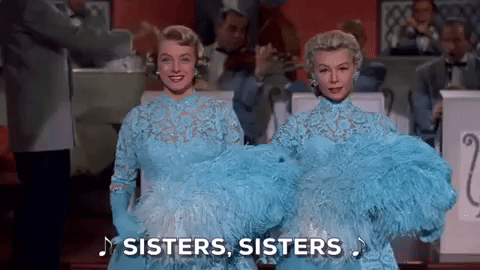Lou Hoover Opened The Door For Future First Ladies
Lou was an extraordinarily accomplished woman of her era.
Lou Henry Hoover was the wife of the 31st President of the United States, Herbert Clark Hoover. Lou was born in Waterloo, Iowa on March 29, 1874. She had a teaching degree and became the first woman to graduate with a degree in geology at Stanford University, where she met Herbert. The day after they married, on February 10, 1899, they moved to China and Lou assisted her husband on his work as a mining engineer.
Lou was an extraordinarily accomplished woman of her era. She was a scholar, an avid athlete, a philanthropist, as well as a strong-willed active feminist volunteering her time and most of her life for the betterment of women and children.
As an example, one of Lou's hobbies while traveling with Herbert was translating a manual on mining and metallurgy from Latin to English, De Re Metallica. Herbert added the explanatory notes and they published this work in 1912. The translation is noted for its clarity of language and the extensive footnotes. However, while living in London in 1914 World War I broke out and Herbert and Lou experienced the horrors of the "Great War" first hand. Spending a great deal of time establishing relief work for the victims of the war.
Upon her return to the United States in 1917, Lou did not stop activism for her husband's career as United States Secretary of Commerce. The main organization she kept close relations with for most of her life was the Girl Scouts. Lou served on various positions within the organization and was a president twice, as well during two decades.
With all of Lou's qualities as an accomplished woman, her four years as the first lady, for the most part, obscure and unremarkable. The Hoover's stopped the routine of social obligations such as the dinners and parties of previous residents of the White House. Celebrating with the Washington DC elite as well as keeping a very large staff for the East and West Wing of the White House.
The Hoover's had a strong belief that to combat the effects of the depression was to ask the private sector to keep the status quo. Believing the federal government did not have the right to force people to do anything. For this reason, Herbert and Lou relied on people's goodwill to help each other.
The President urged the manufacturers to continue production and keep their workers employed. However, the employees stopped spending the eventually many manufacturers had to stop production and lay off these workers. In a speech Herbert made in 1932 he states, "we met the situation with proposals to private business and the Congress of the most gigantic program of economic defense and counterattack ever evolved in the history of the Republic. These programs, unparalleled in the history of depressions of any country and in any time, to care for distress, to provide employment, to aid agriculture, to maintain the financial stability of the country, to safeguard the savings of the people, to protect their homes, are not in the past tense—they are in action."
Lou was working on her own relief efforts. Through the General Federation of Women's Clubs, the Parent-Teacher Organization, and the Girl Scouts, Lou backed the President's efforts with local agencies to help people on a one to one basis. This effort was slow and inadequate as well.
As the Depression escalated, Hoover's favorable image declined. What was not reported at the time was, the enormous staff they hired to help with their various projects, paying for many of their salaries and benefits out of their own pockets. The press never had the opportunity to report that Lou, on many occasions, gave donations to poverty-struck citizens that wrote letters asking for help. She refused to put her name on the donations and channeled them through others or an organization.
Lou was a very private person and refused to let the press into their private lives. She refused to be quoted by the press and in 1932, Mary Austin wrote Earth Horizon that exemplified Lou's lack of control over what was said about her in print. Once a close friend of the Hoover's, Mary lost contact with them during the "Great War" and "waged guerilla warfare whenever opportunity offered against them both," wrote Nancy Beck Young, author of, Lou Henry Hoover-Activist First Lady.
Her charitable nature was one of the main reasons Lou keep the press at bay. Young wrote, "This respect for privacy emanated from two sources: Hoover's personal approach to relief, and her pragmatic sensibility. If word spread too widely that she would provide help to those who asked, her limited resources and staff would have been overwhelmed by request."
Lou opened the door for future generations of first ladies. Her innovative style, feminist nature, as well as her generosity was overshadowed by the difficult era she lived in. Herbert and Lou worked as a team during World War I in Europe, but as the stress of the depression mounted their efforts took them in different directions. This lack of teamwork is one of the main reason's Herbert was unable to get re-elected. Her predecessor, Eleanor Roosevelt, took the reins from Lou and walked the same path. Lou's attention to detail and her purposeful life was overshadowed by the times. Her feminist personality should have been a beacon for future first ladies.

































